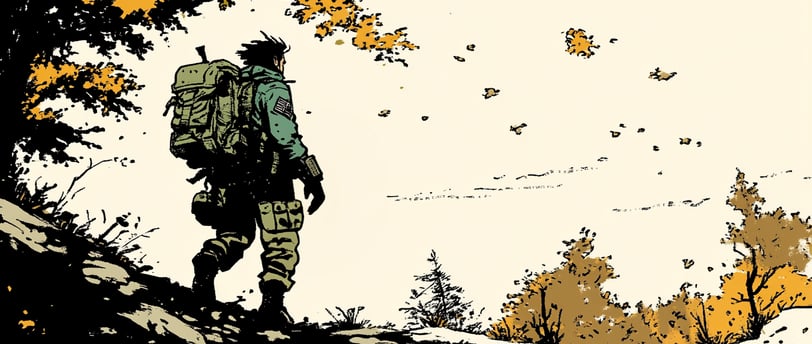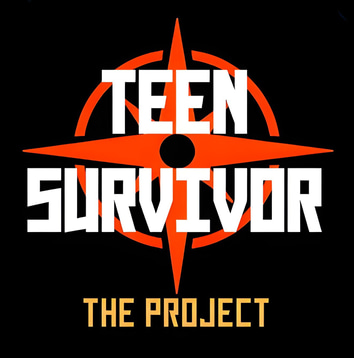What is a Prepper? Debunking Myths and Understanding the Mindset
In a world where convenience reigns supreme and everything we need is just a click away, the idea of preparing for worst-case scenarios might seem a little... extreme. But here’s the thing—being a prepper isn't about paranoia, it's about practicality. It's about taking control in a world that often feels like it's teetering on the edge of chaos.
BEGINNER SURVIVAL SKILLS
1/21/20253 min read


What Exactly is a Prepper?
A prepper is someone who takes proactive steps to ensure their survival and well-being in the face of emergencies. Whether it's natural disasters, economic downturns, or global instability, preppers believe in self-reliance, resourcefulness, and planning ahead. Think of them as problem-solvers—the kind of people you want around when things go south.
Forget the stereotype of the tinfoil-hat-wearing hermit hiding in a bunker. Modern preppers are regular people—families, students, professionals—who simply want to be ready for life's uncertainties. They stockpile essentials, learn practical skills, and stay informed, all with the goal of protecting their loved ones and staying one step ahead.
Common Misconceptions About Preppers
Let’s address the elephant in the room: prepping has a bit of an image problem. Pop culture loves to portray preppers as doomsday-obsessed survivalists, but the truth is far from it.
"Preppers are paranoid."
Nope. Preppers aren't living in fear; they’re living with awareness. They don't expect disaster, but they understand it’s better to be prepared than caught off guard.
"Prepping is all about hoarding supplies."
While stockpiling essentials is part of it, prepping is just as much about skills as it is about stuff. Knowing how to filter water, start a fire, or perform basic first aid is worth more than a basement full of canned beans.
"You need to be rich to prep."
Wrong again. Prepping can be as simple as building a budget-friendly emergency kit and learning how to garden or fix things around the house. It’s about using resources wisely, not spending a fortune.
"Preppers don't trust modern society."
In reality, preppers acknowledge that modern conveniences are great—when they work. But they also recognize how fragile those systems are and choose to have a backup plan.
The Psychology Behind Prepping: Why Do People Do It?
At its core, prepping taps into some basic human instincts—the desire for security, independence, and the need to protect those we love. In an era where we're increasingly disconnected from basic survival skills (seriously, when was the last time you sewed a button or started a fire without Google?), preppers are simply reconnecting with that innate drive to be self-sufficient.
Control in an Uncertain World: With global pandemics, economic instability, and climate change in the headlines, prepping offers a sense of control in a chaotic world.
Self-Reliance Feels Empowering: Learning survival skills boosts confidence and gives people a greater sense of independence.
Community and Connection: Contrary to popular belief, prepping isn’t always a solo mission. Many preppers form communities, share knowledge, and help each other out.
Why Prepping Makes Sense in Today’s World
Let’s be honest: our modern lifestyle is built on a house of cards. We rely heavily on fragile supply chains, just-in-time deliveries, and an overdependence on technology. A single cyberattack, natural disaster, or economic crash can disrupt everything we take for granted.
Prepping is not about rejecting modern life; it’s about safeguarding against its vulnerabilities. It’s about having a plan when the unexpected happens, whether that’s a power outage, job loss, or something bigger.
How to Get Started with Prepping (Without Freaking Out)
If you’re new to prepping, don't worry—you don't need to go all-in overnight. Here are a few easy steps to get you started:
Build a Basic Emergency Kit: Stock up on essentials like food, water, a first aid kit, and some basic tools.
Learn Key Skills: Start with simple things like cooking from scratch, basic repairs, and outdoor skills.
Stay Informed: Keep up with current events and understand the risks specific to your area.
Plan for Short-Term Disruptions: Power outages, financial hiccups, or medical emergencies are good starting points.
Final Thoughts
Being a prepper isn't about living in fear; it's about living smart. It's about recognizing that modern life, for all its conveniences, isn't bulletproof. By embracing preparedness, you're not just getting ready for the worst—you're building a more resilient, self-reliant life.
So next time you hear someone say preppers are "crazy," just remember—being prepared is never a bad idea. After all, when disaster strikes, wouldn’t you rather be ready than regretful?
Teen Survivor Project
Cheat code for young preppers
© 2024. All rights reserved.
